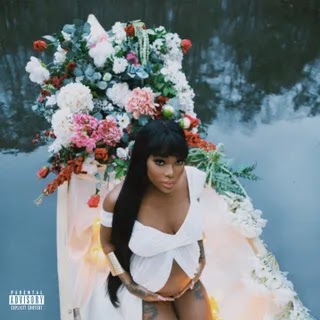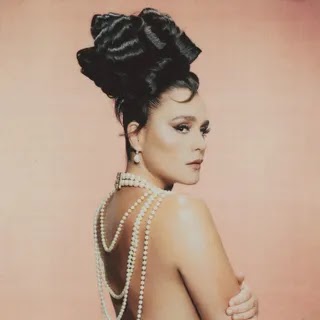Lykke Li’s intimate, ghostly fifth album takes a stripped-down approach to the all-too-familiar devastation of heartbreak.
Lykke Li has a master’s in sadness—“I’ve always had a broken heart since I was a kid,” she recently said. Her music is a companion to sorrow in the same way the sun is a companion to the morning, and on her latest record EYEYE, the Swedish romantic continues her studies in misery with complex supercuts of tear-soaked memories. Reuniting with Peter Bjorn and John’s Björn Yttling, her main collaborator throughout her first three records, Li committed to eight stripped-down songs in an attempt to “break up with the breakup album.” But in the absence of escapist melodic thrills, EYEYE serves as a kind of bloodletting for the heartache that’s nagged her throughout her career.
Loosely based on the concept of a loop, EYEYE opens with the squeak of reversed tape and concludes with a jumble of vocals that suggest Li is being rewound, too. But instead of maxing out her grief with trap beats and double-time delivery as she did on so sad so sexy, or returning to the wall-of-sound production and cathartic choruses of I Never Learn, she turned to her phone. The lo-fi and unselfconscious sound of the voice memos she’d recorded seemed just right, and so EYEYE was ultimately recorded in her bedroom, harnessing the intimate energy of a space that’s integral to dreams, sensuality, and crying in private.
As Li thrusts us into her heavy, moody headspace, background sounds bleed into the music; crickets chirp at odd moments, and subtle white noise fills in pauses. Blurry, underwater guitars accompany her wounded delivery on the first couple songs: “And I know I hold on/To someone not here/But you won’t go away,” she sings breathily on “You Don’t Go Away,” admitting to the dissonance between lost love and lingering romantic feelings. As her voice ascends to a soft soprano, the exhaustion creeps in; the whispered approach is somehow louder than the enraged cry of songs like “Sadness Is a Blessing” and “Gunshot.” But Li isn’t cultivating nostalgia for this former relationship—she’s begging the feelings to leave. “It doesn’t go away/Every night I pray,” she pleads.
Though these heart-in-her-hand lyrics take center stage, the production across EYEYE is both entrancing and bizarre. The album balances mourning and meditation, filling its vast, gelatinous sound field with phantom backing vocals, floorboard creaks, spaceship synths, and eerie, carnivalesque melodies. Midway through the album comes one enlivening, misleadingly playful outlier: “Carousel” captures the sound of an abandoned amusement park ride as Li reflects on the tendency to repeatedly return to a hurtful relationship. “Flying and I can’t come down/Yeah, I’m high as hell,” she sings, stuck on a malfunctioning ride yet hoping it might once again bring some kind of pleasure. At the outro, bioluminescent synths trickle downward like soap bubbles.
It’s after “Carousel” that Li’s conceptual intention comes into full focus. The most devastating aspect of heartbreak is in the way its cyclical ache—the replayed memories and bad habits—shatters the fantasy of a different outcome. “Is it only in the movie you love me?” she asks on “5D.” On closer “ü&i,” she watches a lover walk away and refuses to allow their turned back to become the relationship’s final scene. Instead, she closes her eyes and pleads, “Turn around, yeah you/The movie is you and I.” It’s the greatest conviction Li displays on EYEYE: to command a different ending, even if only in her mind. That dreamy between-worlds effect turns this record into a cinematic opus, even as these painful memories sometimes feel too close for comfort. But you don’t get a master’s in sadness by avoiding your studies.
















0 comments:
Post a Comment